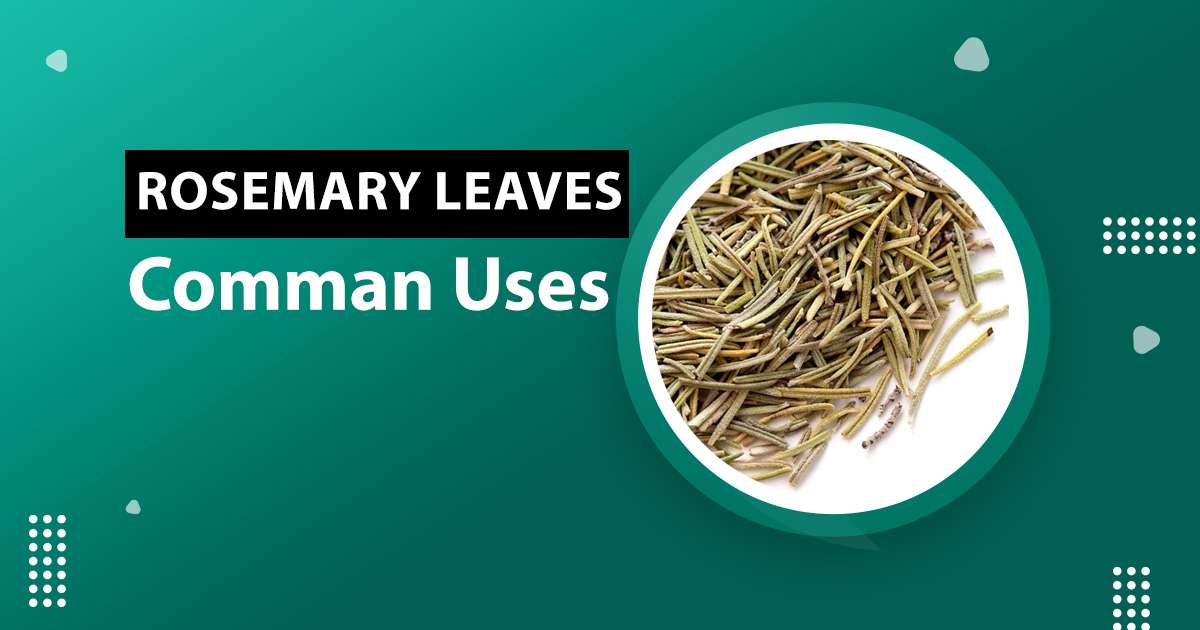Rosemary in Urdu, known as “روزمیری” (rosemary), is a fragrant herb used in many ways. Rosemary is often used in cooking. This term is commonly found in old recipes and traditional medicine. Rosemary adds a distinctive flavor to dishes in culinary traditions, particularly in meat preparations and breads. Medicinally, it is valued for its digestive and respiratory benefits in Urdu herbal medicine. Rosemary may be symbolically referenced in Urdu literature for its aromatic qualities, adding depth to cultural expressions. Overall, rosemary in Urdu, “روزمیری,” plays a significant role in both Urdu cuisine and medicinal practices, contributing to both flavor and health. It has needle-like leaves and a strong, pleasant smell.
Rosemary in Urdu is called “Akleel Kohistani” (اکلیل کوہستانی) in Urdu. You might also hear related terms like rosemary leaves, rosemary plant, and rosemary tea. In Roman Urdu, you pronounce it as “Akleel kohistani.

Common Uses Of Rosemary leaves in Urdu (روزمیری پتوں کے استعمالات)
Here are some common uses of rosemary leaves in Urdu:
– Cooking: Rosemary is added to meats, potatoes, and soups for flavor.
– Aromatherapy: Its oil is used to help people relax and improve mood.
– Medicine: It has been used in traditional medicine to aid digestion and improve memory.
– Gardening: Rosemary plants can repel insects and improve the growth of nearby plants.
– Beauty: It’s used in shampoos and skincare products for its refreshing scent and potential benefits for hair and skin health.

Key Tips for Using Rosemary (روزمیری – Rosemary)
Storing Fresh or Dried Rosemary with Chia Seeds
Store fresh rosemary as mentioned earlier. For chia seeds, store them in a sealed container in a cool, dry place. They don’t need refrigeration.
Using Rosemary in Cooking
Use fresh rosemary by stripping the leaves from the stem and chopping them finely. For dried rosemary, use about half the amount compared to fresh. A little goes a long way, so start with a small amount and add more if needed.
Safety with Rosemary Essential Oil
If using rosemary essential oil, dilute it properly before applying to the skin. Never ingest essential oils unless under the guidance of a healthcare professional. Always do a patch test on a small area of skin to check for any allergic reactions before using it more widely.
Rosemary Benefits in Urdu (روزمیری کے فوائد)
Improved Digestion: Rosemary helps in digestion by stimulating bile production, which aids in breaking down fats and promoting overall digestive health. Enhanced Memory: The antioxidants in rosemary may improve memory and concentration by protecting the brain from oxidative stress. Anti-inflammatory Properties: Rosemary contains compounds that reduce inflammation in the body, which can help alleviate pain and swelling.
Rosemary in urdu (روزمیری کا تیل)
روزماری معدے کی زیادہ میزان میں انتہائی مفید ہے، جو کہ چربیوں کو توڑنے میں مدد فراہم کرتا ہے اور آملسیت کے نشانات کو دور کرنے میں مدد دیتا ہے۔ یاداشت میں بہتری: روزماری میں موجود آکسیڈنٹس یاداشت کو بہتر بنانے میں مدد دیتے ہیں اور دماغ کو آکسیڈیٹو تناو کے بجائے محفوظ رکھتے ہیں۔ ضد التہاب خصوصیات: روزماری میں پائے جانے والے مرکبات جسم میں سوجن کو کم کرنے میں مدد دیتے ہیں، جو درد اور سوجن کو کم کرنے میں مدد دیتے ہیں۔
Appearances & Origin Rosemary Plant in Urdu (روزمیری پودے کی شکل اور اصل)
Here is an explanation of the origin and appearance of the rosemary plant in Urdu:
Appearance (روزمیری پودے کی شکل)
– Leaves: Rosemary has thin, needle-like leaves that are green on top and silver underneath.
– Flowers: The plant produces small, light blue or white flowers.
– Size: It is a small, evergreen shrub that can grow up to 1-2 meters tall.
Origin (روزمیری پودے کا اصل)
Rosemary originates from the Mediterranean region, where it grows naturally in sunny, well-drained areas.
Different Parts of the Rosemary Plant Used
Rosemary leaves in urdu (روزمیری پتے)
The leaves are the most commonly used part of the rosemary plant.
– In Cooking: They add flavor to dishes like meats, potatoes, and soups.
– In Medicine: The leaves are used in teas to help with digestion and improve memory.
Rosemary oil in urdu (روزمیری کا تیل)
Rosemary Oil in Urdu, “روزمیری کا تیل“. It’s known for promoting hair growth, improving memory and concentration, and easing stress when used in aromatherapy. Rosemary oil is extracted from the leaves. It is added to shampoos and skincare products for its refreshing scent and potential benefits for hair and skin health.
Availability of Rosemary Products (روزماری کے مصنوعات کی دستیابی)
In Pakistan, rosemary oil in Urdu (روزمیری کا تیل), products like leaves and oil can vary based on the region and availability. Rosemary is primarily found in urban areas where herbal shops and well-stocked grocery stores cater to a diverse clientele seeking natural remedies and culinary herbs.
Fresh rosemary leaves might be less commonly available compared to dried ones. Herbal shops in larger cities such as Karachi, Lahore, and Islamabad tend to stock dried rosemary leaves, which are used in cooking and herbal teas.
Rosemary oil is increasingly popular for its therapeutic properties and is sometimes available in herbal shops that specialize in essential oils and natural remedies. It’s known for its soothing aroma and potential health benefits.
Where to Find Rosemary Products
– Herbal Shops: Look for specialized herbal shops in major cities, particularly those that focus on natural and organic products. These shops often carry a variety of herbs and essential oils, including rosemary.
– Grocery Stores: Some well-stocked grocery stores catering to health-conscious consumers may also carry dried rosemary leaves in their herb sections.
- Band Ligation for Hemorrhoids in Karachi – Safe Treatment by Dr. Abdullah Iqbal - September 24, 2025
- 5 Bawaseer Ki Alamat Aur Unse Bachne Ke Tarike in Urdu - May 29, 2025
- Important Care after Laser Surgery for Hemorrhoids, Fissure or Fistula - May 29, 2025


